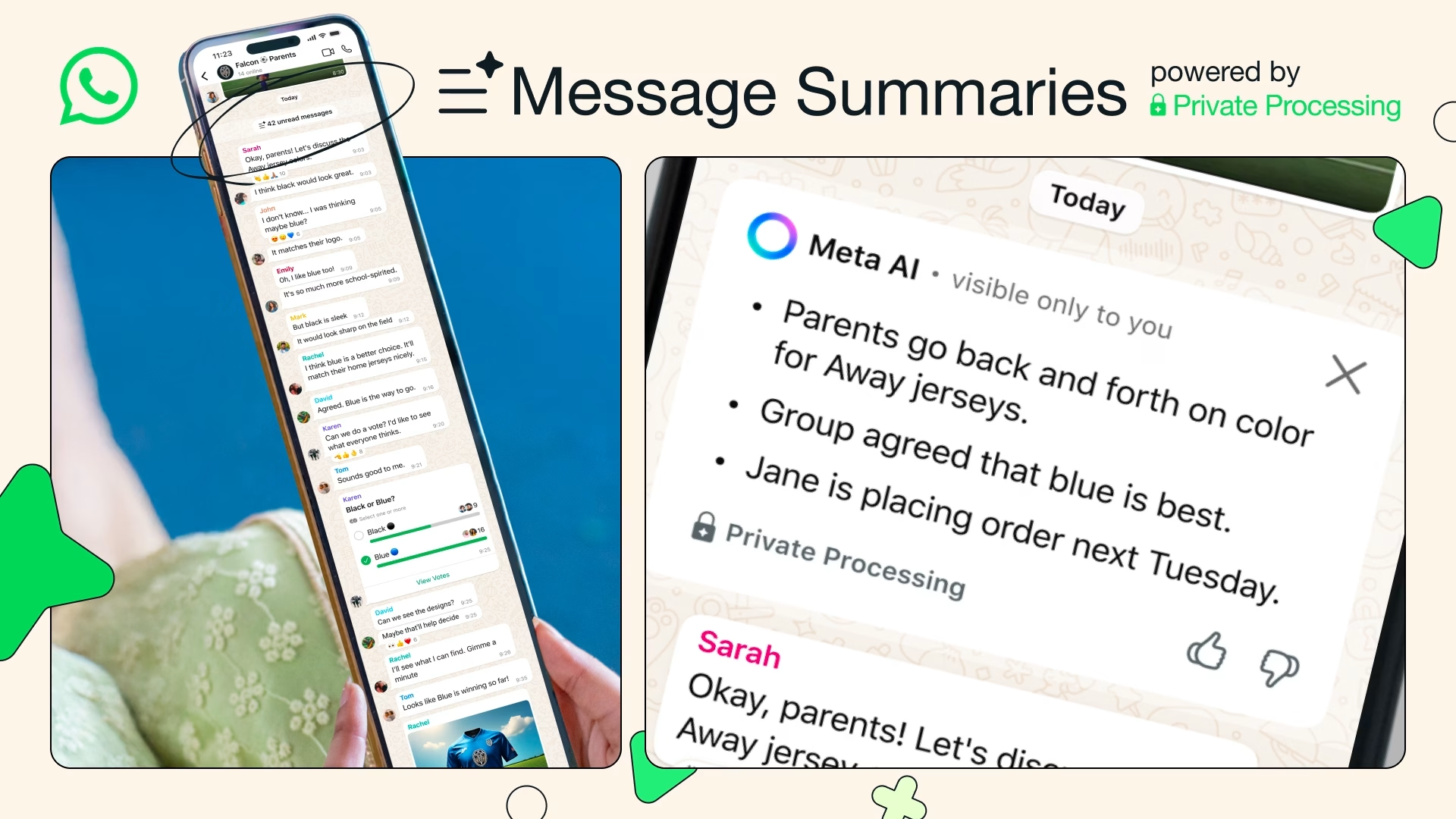WhatsApp's AI Summaries: A New Chapter for Private Messaging?
So, WhatsApp, the messaging giant that pretty much everyone I know uses daily, has just rolled out a pretty significant new feature: AI-generated summaries for private messages. Yeah, you heard that right. It's not just for those sprawling group chats anymore; it's coming to your one-on-one conversations too. This isn't some distant beta test; it's happening now, globally, as multiple tech outlets have confirmed in the last day or so. It's a move that, frankly, has me both intrigued and, I'll admit, a little cautious.
What Exactly Are These AI Summaries?
At its core, this new feature, often dubbed "Message Summaries" and powered by Meta AI, aims to solve a very common problem: information overload. We've all been there, haven't we? You open WhatsApp after a few hours, or even a day, and find a group chat with hundreds of unread messages. Or maybe a particularly verbose friend has sent you a novel-length series of texts. Catching up can feel like a chore, a real time sink.
That's where these AI summaries step in. The idea is simple: the AI sifts through those unread messages and spits out a concise overview, giving you the gist of the conversation without having to scroll endlessly. Think of it as your personal, super-fast reader, highlighting the key points. It's designed to make catching up on long chats much easier, a real boon for productivity, or at least, that's the pitch.
The Elephant in the Room: Privacy and End-to-End Encryption
This is where WhatsApp, or rather Meta, has been very keen to emphasize their approach. They claim the AI processing happens in a way that maintains the end-to-end encryption. The specifics are a bit technical, but the general idea is that the summarization occurs on the device, or via secure, encrypted channels where the content isn't exposed in plain text to Meta's servers. WABetaInfo, a reliable source for WhatsApp developments, has highlighted this focus on secure and private processing. It's a critical distinction, and frankly, if they mess this up, it could seriously erode user trust. And we know how important that is in the messaging space.
User Experience: Convenience Versus Control
From a pure user experience standpoint, the convenience factor is undeniable. Imagine missing a crucial detail in a fast-moving family chat about holiday plans, or a work group discussing project updates. A quick summary could save you minutes, even hours, of sifting through irrelevant banter.
Broader Implications and the AI Integration Trend
This move by WhatsApp isn't happening in a vacuum. It's part of a much larger trend of integrating AI into our everyday digital tools. Meta, in particular, has been pushing its AI capabilities across its platforms. We've seen AI chatbots, AI image generation, and now, AI-powered message analysis. It signals a future where AI isn't just a separate tool you interact with, but an embedded layer that enhances (or perhaps alters) the core functionality of the apps we use most.
The global rollout suggests a confident stride by WhatsApp in this direction. It's a clear signal that they believe AI can genuinely enhance user experience, even for something as personal as private messaging. This isn't just about catching up on messages; it's about setting a precedent for how AI will interact with our personal data, even when encrypted.
Looking Ahead: What's Next for WhatsApp and AI?
The introduction of AI summaries is undoubtedly a significant update. It addresses a real pain point for many users, offering a glimpse into a more efficient, AI-assisted communication future. However, the success of this feature will hinge entirely on how well WhatsApp manages the privacy aspect. Their assurances about end-to-end encryption and on-device processing are paramount. If those assurances hold true, this could be a game-changer for how we manage our digital conversations.
